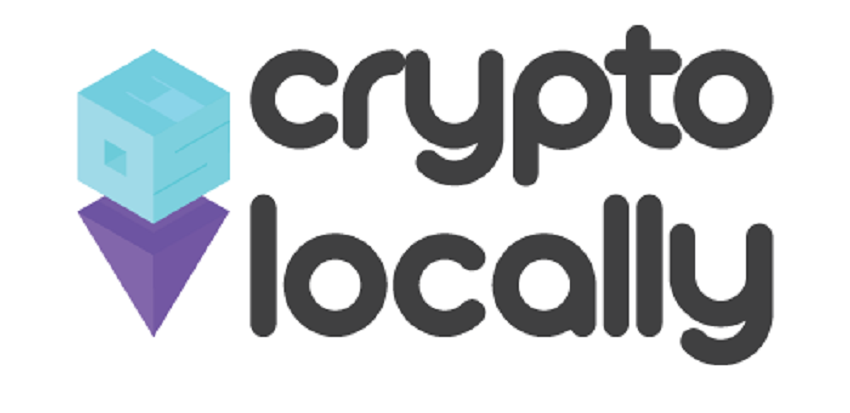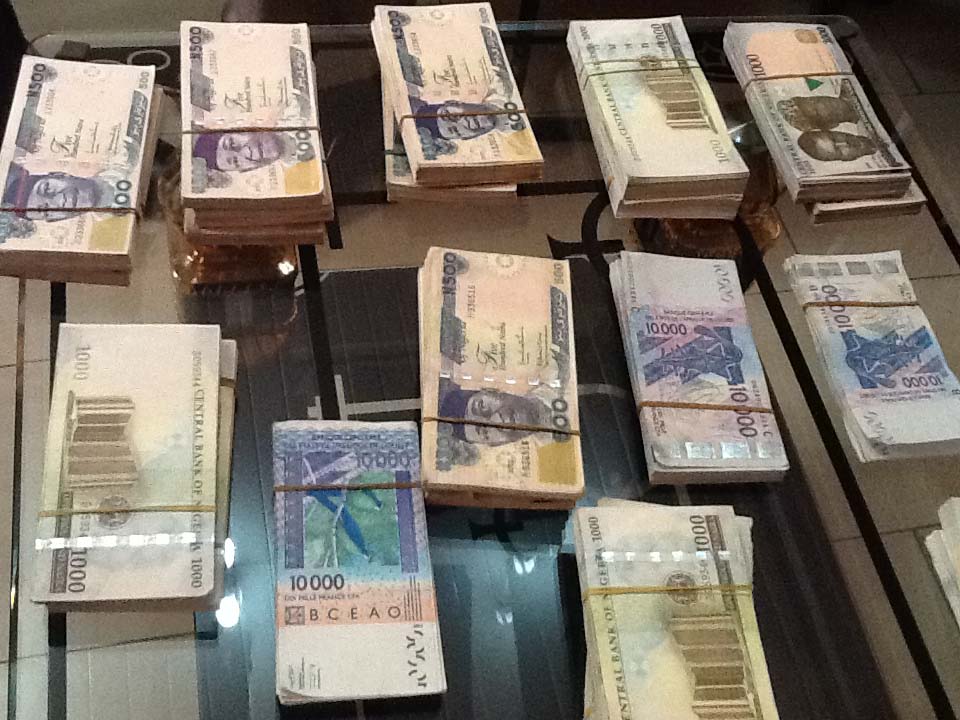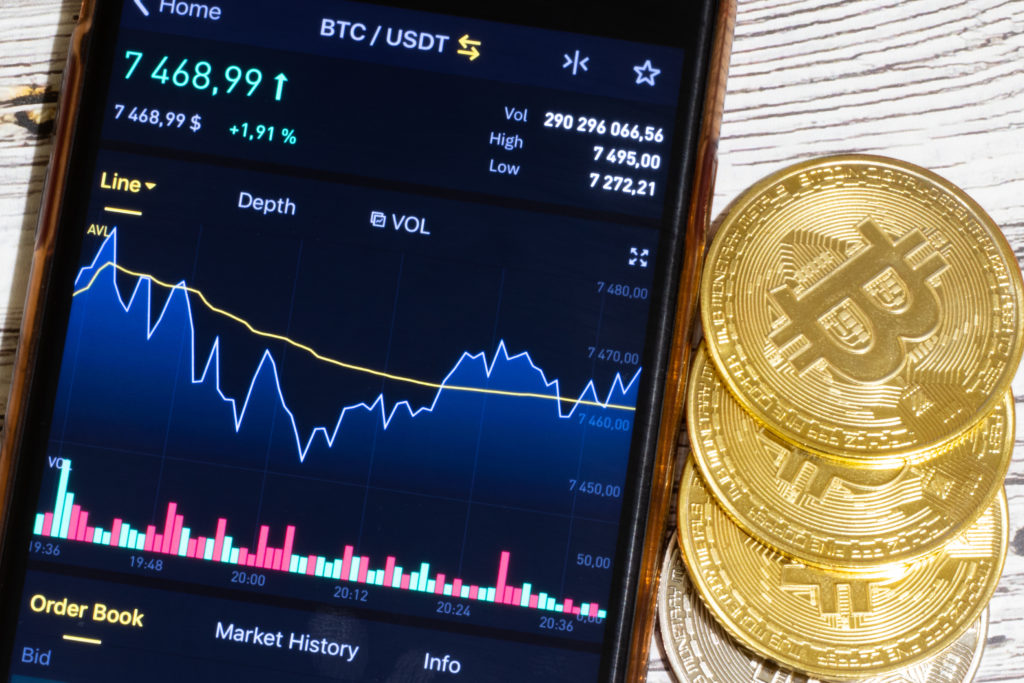Economy
CryptoLocally Lists Dogecoin on Decentralized P2P Platform

By Adedapo Adesanya
CryptoLocally has announced that Dogecoin (DOGE) will be available to trade on its decentralized peer-to-peer (P2P) trading platform, giving Nigerian cryptocurrency traders ease of transactions.
DOGE, the cryptocurrency that started as a joke, has become a poster child of the entire industry. Now, users will be able to take advantage of Dogecoin’s bullish market trend.
In a press release, the company stated that as part of efforts to offer the very best P2P trading experience to its customers, there is no better way than by offering one of the hottest cryptocurrencies out in the market today.
“Our relentless effort to bring the best P2P trading experience to our customers has led us to continually innovate and evolve. GIVernance, our governance platform, is one of the fruits of this labour. It empowers our community to take a more active role in steering the development of our platform.
“This shared-governance model gave a powerful voice to our users, using GIV to support proposals that bring more value to CryptoLocally’s ecosystem. In fact, the listing of Dogecoin on our platform is a community-driven initiative led and approved by GIVernance participants.
“The listing of Dogecoin by the community is a fitting example of the workings of a truly decentralized P2P trading venue.
“In CryptoLocally, we give traders what they want when they want it,” it noted.
Dogecoin was created in 2013 by Jackson Palmer and Billy Markus as a light-hearted and fun crypto project. It was meant to be a satirical take on cryptocurrencies with no particular purpose other than a reward mechanism for online content.
The crypto project was based on the popular “Doge” Internet meme and features Shibu Inu as its logo. It was officially launched by Jackson Palmer on December 6, 2013, with the release of its official website. Surpassing all expectations, the website had over one million views within one month of launching.
At the time, DOGE briefly surpassed all trading volumes of all cryptocurrencies combined; even that of Bitcoin. It owes its success to the fun-loving Dogecoin community which has grown tremendously throughout the years.
Mr Markus developed Dogecoin’s protocol based on Litecoin’s scrypt technology. It was meant to be more ASIC resistant and promote more decentralized mining activity on the Dogecoin network.
However, Dogecoin offers faster transactions and confirmations than Litecoin as it has a block time of only one minute compared to the latter’s 2.5 minutes. The transaction fee of Dogecoin is also comparable to that of Litecoin’s, making DOGE a very good alternative to Litecoin as a payment network.
Despite its apparent advantages, DOGE never positioned itself as a payment network nor as an investment vehicle. There is no clear logical reason why people love promoting, holding, and using DOGE. Its unique charisma allowed it to quickly develop a vibrant and strong online community.
It consistently got the attention of business magnate, Elon Musk, and more recently, legendary music artists Snoop Dogg and Gene Simmons. Snoop Dogg put an online mock album with an image caption “Snoop Doge,” while Gene Simmons of rock band KISS called himself the “God of Dogecoin.”
Economy
How U.S. and Nigerian Borrowing Policies Differ

Borrowing rules in the United States and Nigeria may share some similarities. Both systems serve the same human need, access to cash when life gets complicated. What separates them is how each country balances control and opportunity.
In the U.S., a loan is not just a transaction but a data point in a lifetime of credit history. In Nigeria, borrowing is often a leap of faith between a lender and a customer with no paper trail. These differences affect not only how people get money but also how they build financial stability.
Borrowing in the U.S.: Quick Overview
The U.S. credit environment is built on documentation and transparency. Every adult with a bank account is part of a vast credit network monitored by three major bureaus: Experian, Equifax, and TransUnion. They build credit reports that reflect an individual’s financial behavior and translate it into the FICO score. This number can open or close financial doors. The U.S. system rewards discipline. The better your credit score, the lower your borrowing cost.
Lenders here make decisions based on strict verification and legal protection. Key regulations include:
- Truth in Lending Act (TILA) – requires clear disclosure of fees and APRs.
- Fair Credit Reporting Act (FCRA) – sets standards for how credit data can be used.
- State-level lending laws – define limits on loan amounts, APRs, and other terms.
Short-term loans in the U.S. are legal only where local law allows. In some states, they’re banned entirely, while in others, they are strictly regulated to prevent exploitation. Borrowers know the total cost in advance, and auto-debit payments minimize missed deadlines.
Borrowing in Nigeria: Quick Overview
Nigeria’s credit system is young but growing fast. Over the past decade, fintech innovation has brought financial services to millions who never had a bank account. Apps now approve loans in minutes, using mobile data instead of a credit bureau report.
This convenience, however, comes with a price. Borrowers often face unclear interest rates and hidden service fees, aggressive collection tactics, including public “debt shaming,” and little or no credit-building effect, even after on-time payments. On top of that, short repayment periods, sometimes less than 30 days, make debts difficult to handle.
The Central Bank of Nigeria (CBN) has tried to impose order by licensing Credit Reporting Companies and enforcing transparency rules. But many lenders still operate outside the formal system. Inflation and limited employment push citizens toward quick, high-cost borrowing just to manage daily expenses.
Short-Term Borrowing in the U.S. and Nigeria
This is where the contrast becomes sharpest. In the U.S., payday loans are strictly regulated at both the state and federal levels. They usually range from $100 to $1,000 and are due in about two weeks. The fees, while steep, are disclosed upfront and standardized. Most borrowers take them for emergencies, such as rent, car repairs, or medical bills, and repay automatically on their next payday.
U.S. borrowers can borrow money from payday lenders safely, provided that they are dealing with a top-rated lending platform. When choosing a reliable loan provider, applicants can rest assured that their personal data is safe and that the company fully complies with all consumer protection rules. However, short-term loans in the US usually come with high costs, which are $10 to $30 for each $100 borrowed. Therefore, some states fully prohibit payday lending.
In Nigeria, digital microloans dominate. Some require no collateral or even identification beyond a phone number. Approval takes minutes, but repayment deadlines are so tight that re-borrowing is common. Rates can vary from 10% to 30% per month, depending on the platform.
Short-term loans in the U.S. function within a regulated system, while risks of predatory lending still exist. Nigerian short-term credit runs on speed and accessibility but often lacks guardrails.
Long-Term Credit and Consumer Protection
Long-term lending reveals the maturity gap between the two countries. In the United States, borrowers can access a full range of structured loans, including mortgages with 15–30-year repayment terms, auto loans backed by the purchased vehicle, and personal installment loans with fixed monthly payments and interest rates.
Each loan builds credit history when managed responsibly, allowing borrowers to access better terms in the future. Consumers also benefit from protection under the Consumer Financial Protection Bureau (CFPB), which monitors fairness and prevents predatory lending.
In Nigeria, long-term credit remains a luxury. Commercial banks require collateral, employment proof, and detailed income statements. For many citizens, these conditions are unreachable. As a result, they rely on rolling short-term loans from digital lenders. This pattern can trap them in high-interest cycles.
Still, local fintechs are experimenting with longer repayment models. The results are mixed: flexibility has increased, but oversight hasn’t caught up.
Credit Scores in Both Economies
A person’s credit score is a fingerprint of trust. In the United States, credit scoring has been part of daily life for decades. The three major bureaus, Experian, Equifax, and TransUnion, collect repayment data, credit card limits, loan applications, and even utility bills. These factors form the FICO score, a universal measure that determines an individual’s trustworthiness and directly affects borrowing terms.
Your credit behavior in the U.S. affects nearly everything. It determines whether a bank will issue a personal or car loan, the rate you’ll pay for insurance, and even your ability to rent a home or land certain jobs.
The advantage is stability. Borrowers can rebuild credit by paying on time, disputing inaccurate reports, and keeping credit utilization low. Over time, this creates a transparent feedback loop between lenders and borrowers.
Nigeria is just starting this journey. Its Credit Reporting Companies (CRCs), established under the Credit Bureau Act, are building a database from scratch. However, most lenders still rely on alternative data, such as mobile phone activity, including call history and airtime top-ups, utility and rent payments, and e-commerce and wallet transactions.
While these sources help extend loans to people with no banking history, they lack consistency. Not all digital lenders report back to credit bureaus, so on-time payments don’t always improve a borrower’s record. The result is uneven progress. People borrow more, but their financial profiles stay invisible.
Cultural and Economic Factors Behind Borrowing Behavior
Money habits grow from social roots as much as from regulation. In the U.S., personal finance education and widespread access to banking make credit a predictable tool. People use loans strategically. Among the most common reasons are debt consolidation, investing in education, or funding small businesses. Even short-term borrowing carries an expectation of repayment discipline, although many borrowers end up being trapped in debt.
In Nigeria, the motivation to borrow is different. Most citizens turn to credit for survival or micro-entrepreneurship. Inflation above 20% and unstable income streams mean that cash shortages are frequent, especially among market vendors, gig workers, and small traders. The informal economy determines how people think about debt. They often treat it as a community affair rather than a personal contract.
Social lending groups, called ROSCAs (Rotating Savings and Credit Associations), remain common. They rely on trust and peer accountability instead of paperwork. This culture of shared obligation fills the gaps left by limited formal credit.
Yet, as digital lending grows, that sense of personal responsibility is shifting. Borrowers are moving from face-to-face agreements to app-based decisions made by algorithms. The cultural adjustment is still ongoing, and regulators are racing to keep pace with behavior that changes faster than the law.
What Both Countries Can Learn from Each Other
The United States could learn from Nigeria’s creativity. Fintech innovation in Nigeria has redefined what accessibility looks like. Peer-to-peer lending, mobile-first onboarding, and microloans show how technology can reach people ignored by the traditional system. U.S. lenders, often slowed by paperwork, could adopt lighter, data-driven verification for smaller loans without sacrificing compliance.
Nigeria, meanwhile, could take cues from the American model of regulation and transparency. Establishing consistent reporting standards across all lenders would make credit scores meaningful and protect borrowers from predatory practices. Integrating mobile data into official credit systems could also help people transition from informal borrowing to formal finance, unlocking larger, safer loan options.
Both nations face the same global challenge: building credit systems that balance innovation with fairness. The U.S. has mastered structure, while Nigeria has speed. The future of lending may depend on combining both strengths.
Final Thoughts
Borrowing, at its core, reflects a country’s priorities. The United States prides itself on predictability, where every transaction leaves a record. Nigeria prioritizes accessibility, sometimes at the expense of oversight. This happens because its people can’t afford to wait for old systems to catch up.
As these economies evolve, their borrowing models may slowly converge. With technology bridging data gaps and governments refining consumer protections, the distance between Washington and Lagos might shrink, at least in financial terms. For now, both nations remind us that credit isn’t just about money; it’s about trust, time, and the stability of a paycheck and economy.
Economy
FG Maps Disputed Oil Wells to Reset Derivation Revenue

By Adedapo Adesanya
The federal government has launched the plotting of coordinates of disputed and newly drilled oil and gas wells, a critical process that could redefine derivation revenue flows and fiscal entitlements among Nigeria’s oil-producing states.
The exercise, formally flagged off by the Revenue Mobilisation Allocation and Fiscal Commission (RMAFC) in Abuja, follows the October 2025 flag-off of verification in the Niger Delta, triggered by petitions from the Governors of Anambra, Delta, Imo, Edo, Ondo and Rivers States, seeking clarity on ownership and boundaries of oil and gas resources.
According to the commission’s chairman, Mr Mohammed Bello Shehu, the process is a constitutional necessity rather than a political choice.
“This is not optional; it is a constitutional obligation,” Mr Shehu said. “The Constitution provides that 13 per cent of revenue from minerals, especially crude oil and gas, should be paid to the states where they are produced, and this is why the verification and plotting of coordinates of the new and disputed oil and gas wells must be done transparently and correctly.”
Mr Shehu disclosed that the Inter-Agency Technical Committee (IATC), comprising the National Boundary Commission (NBC), Office of the Surveyor-General of the Federation (OSGoF); Nigerian Upstream Petroleum Regulatory Commission (NUPRC), and RMAFC, has completed the verification phase and is now moving to the plotting stage.
“The IATC has verified the coordinates, and the next phase is to plot them, which will lead to resolving the location of the disputed oil and gas wells and properly attributing newly drilled wells to their rightful owners,” Mr Shehu said.
According to the RMAFC chairman, the exercise covers Akwa Ibom, Cross River, Bayelsa, Ondo, Rivers, Delta and offshore locations, where overlapping claims frequently emerge whenever new oil fields come on stream.
“Disputes arise when new fields are developed, because multiple states may lay claim,” he explained. “But it is the facts on ground that will reveal who actually owns what, and where ownership must be shared.”
To guarantee credibility, Mr Shehu revealed that the Commission conducted extensive fieldwork between September 2025 and January 2026, covering creeks, high seas and offshore terrains.
“We went to the field ourselves, and where we could not physically access, we deployed drones to take the coordinates,” he said. “All data collected were witnessed by representatives of the affected states.”
He assured that RMAFC would remain neutral throughout the process.
“RMAFC will be an unbiased umpire and will deploy justice, equity and fairness for which it is known,” he stated.
The Secretary to the Commission, Mr Joseph Okechukwu Nwaze, said the exercise reflects strong inter-agency cooperation.
“This process reinforces confidence in RMAFC as a neutral institution committed to fairness in revenue administration and fiscal federalism,” he said.
On her part, the Director, Crude Oil Department, Mrs Khadija Kumo, described the initiative as “timely and critical to the future of energy governance in Nigeria,” adding that “data-driven decision-making must now define oil and gas administration.”
Coordinator of the IATC, Mr Folorunsho Aderinwala, lauded the commission for providing full institutional support, noting that it enabled the committee to successfully complete verification across difficult terrains.
The mapping of coordinates is expected to become one of the most consequential fiscal governance exercises in Nigeria’s oil and gas sector in recent years, potentially redrawing the economic map of the Niger Delta.
Economy
SEC Recapitalisation: Capital Market Stakeholders Seek Six-Month Extension

By Adedapo Adesanya
Some stakeholders in the Nigerian capital market, including the Capital Market Academics of Nigeria (CMAN) and the Chartered Institute of Stockbrokers (CIS), have called on the Securities and Exchange Commission (SEC) to extend the deadline for the ongoing recapitalisation of regulated capital market entities from June 2027 to December 2027.
SEC, the capital market regulator, recently raised the minimum capital requirements, with brokers asked to increase their capital base from N200 million to N600 million, while dealers are required to have N1 billion instead of the current N100 million.
For broker-dealers, they are to get N2 billion instead of N300 million, reflecting multi-role exposure across trading, execution, and margin lending.
The agency said fund and portfolio managers with assets above N20 billion must hold N5 billion, while mid-tier managers must maintain N2 billion with private equity and venture capital firms to have N500 million and N200 million, respectively.
Digital sub-brokers are required to maintain N100 million in capital and corporate sub-brokers N50 million, up from N10 million each previously.
The SEC stated that the reforms aim to strengthen market resilience, enhance investor protection, discourage undercapitalised operators, and align capital adequacy with the evolving risk profile of market activities.
Speaking at a roundtable themed, Deconstructing the New Minimum Capital Requirements for Regulated Capital Market Entities in Nigeria, CMAN, led by Professor Uche Uwaleke, said while recapitalisation is necessary and deserves full support, the proposed timeline remains debatable considering the 2027 general elections.
He said election years are typically characterised by uncertainty and erratic investor behaviour, which could make capital mobilisation difficult.
Professor Uwaleke urged the SEC to consider extending the deadline to December 2027, effectively shifting the implementation period from 18 months to 24 months, saying that “There is no doubt that recapitalisation is necessary, but extending the deadline would better align with market realities.”
On her part, the first vice president of the Chartered Institute of Stockbrokers (CIS), Mrs Fiona Ahimie, said the timing of the exercise was problematic, even if the absolute capital amounts were not excessive, stressing that operators should not be conflicted between executing client transactions and sourcing capital for themselves, adding that extending the deadline was the most practical solution.
-

 Feature/OPED6 years ago
Feature/OPED6 years agoDavos was Different this year
-
Travel/Tourism9 years ago
Lagos Seals Western Lodge Hotel In Ikorodu
-

 Showbiz3 years ago
Showbiz3 years agoEstranged Lover Releases Videos of Empress Njamah Bathing
-

 Banking8 years ago
Banking8 years agoSort Codes of GTBank Branches in Nigeria
-

 Economy3 years ago
Economy3 years agoSubsidy Removal: CNG at N130 Per Litre Cheaper Than Petrol—IPMAN
-

 Banking3 years ago
Banking3 years agoSort Codes of UBA Branches in Nigeria
-

 Banking3 years ago
Banking3 years agoFirst Bank Announces Planned Downtime
-

 Sports3 years ago
Sports3 years agoHighest Paid Nigerian Footballer – How Much Do Nigerian Footballers Earn






















